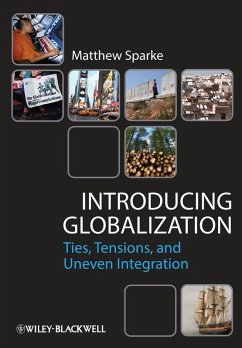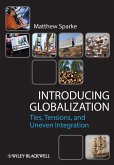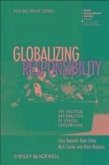Designed specifically for introductory globalization courses, Introducing Globalization helps students to develop informed opinions about globalization, inviting them to become participants rather than just passive learners. * Identifies and explores the major economic, political and social ties that comprise contemporary global interdependency * Examines a broad sweep of topics, from the rise of transnational corporations and global commodity chains, to global health challenges and policies, to issues of worker solidarity and global labor markets, through to emerging forms of global mobility by both business elites and their critics * Written by an award-winning teacher, and enhanced throughout by numerous empirical examples, maps, tables, an extended bibliography, glossary of key terms, and suggestions for further reading and student research * Supported by additional web resources - available upon publication at href="http://www.wiley.com/go/sparke">www.wiley.com/go/sparke - including hot links to news reports, examples of globalization and other illustrative sites, and archived examples of student projects Engage with fellow readers of Introducing Globalization on the book's Facebook page at href="http://www.facebook.com/IntroducingGlobalization">www.facebook.com/IntroducingGlobalization, or learn more about this topic by enrolling in the free Coursera course Globalization and You at href="https://www.coursera.org/course/globalization">www.coursera.org/course/globalization
Dieser Download kann aus rechtlichen Gründen nur mit Rechnungsadresse in D ausgeliefert werden.









